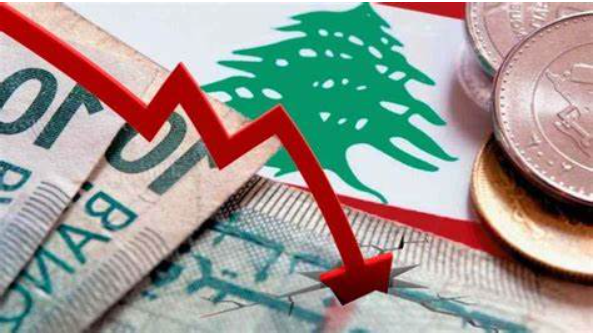Amid the complex crises Lebanon has been facing, the economic recovery plan that constituted the base of the staff-level agreement between Lebanon and the IMF was leaked to the public. The leaked plan —which is not in full swing just yet— stirred up a lot of controversy, notably the part related to the “haircut” on people’s bank deposits.
LIMS explained that the plan estimates the total recapitalization needs of banks at 72 billion dollars (300% Lebanon’s 2021 GDP). Those losses are mainly due to banks lending to the public sector, more specifically to the Lebanese government and the central bank. To cover those losses, the plan stipulates impairing banks’ capital and wiping out around 60% of deposits. Such a solution is presented as a way to restructure the banking system and the government debt. Additionally, the plan includes imposing capital controls, which is part of the IMF’s preconditions, to unify the “official” exchange rates.
LIMS argued that the plan’s priorities are inverted as Lebanon should work on relaunching economic growth, prior to discussing the distribution losses. Growth would reduce the losses that need to be distributed, hence decreasing the size of the needed haircut. Monetary stability will play a major role in putting the economy back on track and can be achieved through a currency board. The currency board would enforce fiscal discipline on the government and stop financing bank losses with inflation, which explains the reluctance of decision makers and bankers to this reform.
LIMS sees the bid to decrease the fiscal deficit through an increase in tax rates and tariffs, will only further incentivize tax and customs evasion. Moreover, this move would strangle the economy, in turn leading to larger negative growth. Instead, a more effective approach would be to switch to a low flat tax. By doing so, tax evasion would become a less attractive option and the larger tax base would increase the overall government’s revenues.
On the electricity sector reform, LIMS noticed that the government proposed a hastily prepared reform that didn’t align with the IMF’s conditions. Mainly, the problem with the electricity is the extremely underpriced service (1 cent per kilowatt hour) and doesn’t cover the cost (25 cents per kilowatt hour). Therefore, the first reform should be adapting the price to cover the costs. Later on, the sector should be unbundled and opened for competition to drive down the cost and improve the service quality.
LIMS concluded that sealing the IMF deal is crucial for Lebanon to regain the trust of the international community. Even though such reforms are not optimal, they are still better than the current direction the government is heading.
- Restructuring Banking Sector Won’t Protect Deposits, May 2, 2022: Grad LB, Article AR
- The Economic File and Agreement With the IMF – With The CEO Of The Lebanese Institute For Market Studies May 2, 2022: VDL, TV Interview AR
- Worrisome Leaks…What’s Behind The Plan To Strike Off Deposits In Lebanon? May 8, 2022: Al Estiklal, Article AR
- Fear of Passing Controversial Laws Regardless Of Serious Reforms, IMF Agreement Relies On The Elections’ Results, May 16, 2022: Nidaa Al Watan, Article AR
- The Cabinet Towards Caretaker Mode—What Is The Fate Of The Urgent Economic Situations? May 18,2022: MTV, TV Interview AR
- What’s Next After Adoption Of Economic Reform Plan And Increase In Telecom Fees, May 20, 2022: Sawt Beirut International, TV Interview AR
- Financial Recovery Plan Measures Call For Reminiscence For Its Monetary Counterpart, Tax Increase During Times Of Collapse, A Life Sentence Of Recession For Economy, May 25, 2022: Nidaa Al Watan, Article AR

